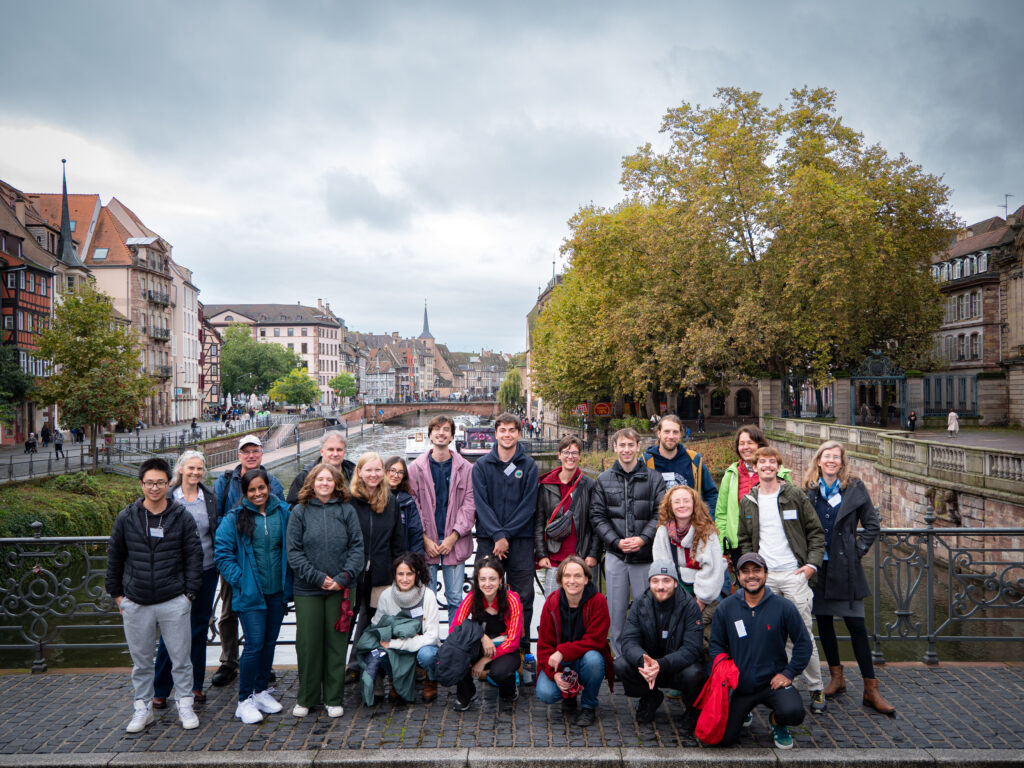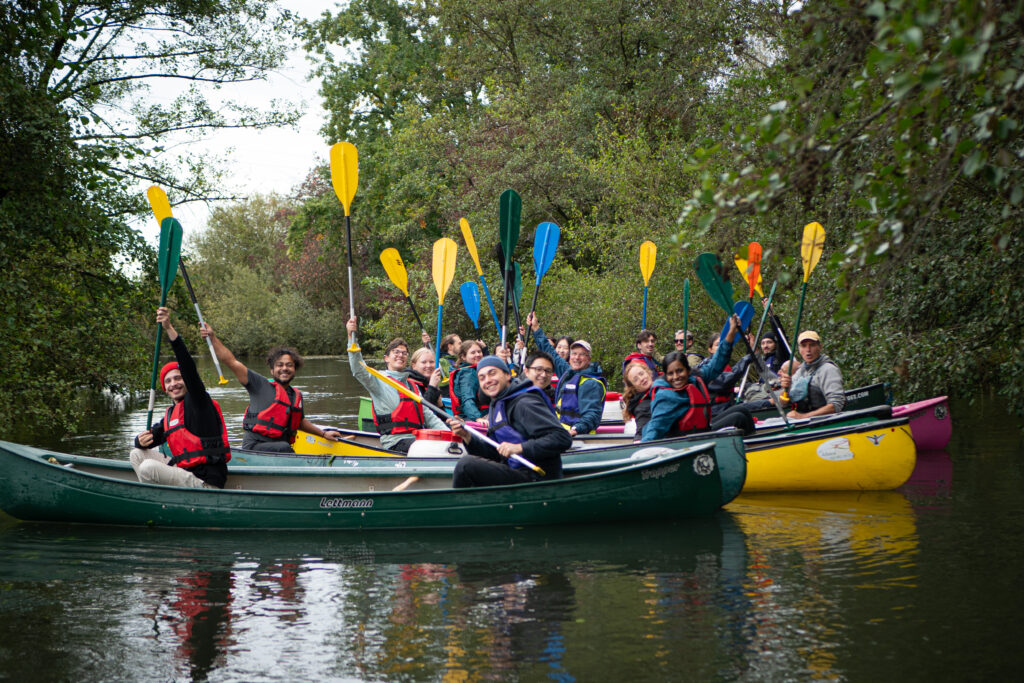Eucor Fall School on sustainable water use on the Rhine
Freiburg, 31/10/2024
From 7 October to 11 October 2024, students and doctoral candidates explored the sustainable water use in the Rhine region as part of the trinational Eucor Fall School. In a policy paper, they developed recommendations for cross-border policy in the Upper Rhine region.

The sustainable use of water in rivers with different neighbouring countries requires their cooperation, as is the case in the trinational Upper Rhine region. Students and doctoral candidates from the Eucor universities took a transdisciplinary approach to this topic at the Eucor Fall School from 7 to 11 October 2024 in Strasbourg. At the end of the event, they drafted a policy paper in which they recommended to politicians that cross-border cooperation be strengthened, for example in ecological monitoring, and that civil society stakeholders be more involved.
Combining theory with practice
How can fluvial landscapes be restored? What elements are necessary for successful environmental education? What approaches can be taken to resolve conflicts of interest around water use? For a whole week, the 18 participants from a range of nationalities and disciplines explored specific topics related to sustainable water use. “Combining theory and practice was a key concern for us,” says Prof. Dr. Karl Matthias Wantzen, who developed the concept for the Fall School and led it together with colleagues from Freiburg and Basel. In addition to his UNESCO Chair for Rivers and World Heritage, he holds a cross-border Eucor professorship based at the University of Strasbourg and the Karlsruhe Institute of Technology. “We wanted to include scientific perspectives as well as those of people who deal with water and water bodies in their daily work.” For example, the participants discussed the topic of “water-ecology-nutrition” not only within the university, but also with an organic farmer to learn about his expertise. And before the participants discussed how environmental issues can be communicated, they were able to experience this personally on a kayak tour.

Recommendations for cross-country policies
Over the course of the week, the participants developed a policy paper with specific options for action for policymakers. They recommend more cross-border cooperation, both in ecological monitoring and in the corresponding regulatory decisions. Furthermore, there should be more cross-sectoral participation of citizens, organisations and commercial enterprises.
Enriching trinational perspectives
“The Fall School gave me the chance to make new contacts and to look at the topic of water management from very different perspectives. The trinational exchange worked very well and was very enriching for me personally. We also learned how important this trinational approach is for addressing water use issues on the Rhine,” said Jule Schulz-Villmow, who is in her fourth semester of the Global Studies Programme in Freiburg. Wantzen agreed: “The cooperation between the participants from the various Eucor universities was very beneficial. This is also reflected in the impressive presentations by the participants at the end of the Fall School and in the recommendations for action that were developed.”
Further Information
The Eucor Fall School ‘Transdisciplinary Approaches to the Sustainability of Water Use: Case Studies from the Upper Rhine’ was organised by Eucor in cooperation with the Universities of Strasbourg (led by the Eucor Chair ‘Water and Sustainability’, UNESCO Chair ‘Rivers and World Heritage’, Prof. Dr. Karl Matthias Wantzen), Freiburg (coordination) and Basel, the OneWater-Eau Bien Commun project, the National Engineering School for Water and Environment (ENGEES; venue) and the Ökoinstitut Freiburg. It was funded by the German-French University, the Ministry of Science, Research and Arts of Baden-Württemberg and the Swiss movetia fund.